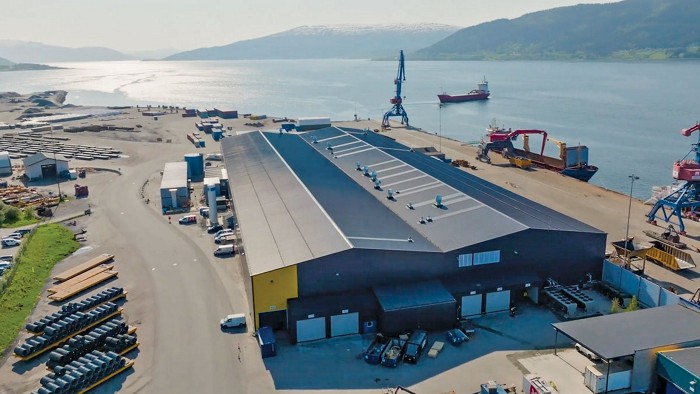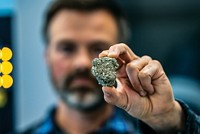Advertisement
Grab your lab coat. Let's get started
Welcome!
Welcome!
Create an account below to get 6 C&EN articles per month, receive newsletters and more - all free.
It seems this is your first time logging in online. Please enter the following information to continue.
As an ACS member you automatically get access to this site. All we need is few more details to create your reading experience.
Not you? Sign in with a different account.
Not you? Sign in with a different account.
ERROR 1
ERROR 1
ERROR 2
ERROR 2
ERROR 2
ERROR 2
ERROR 2
Password and Confirm password must match.
If you have an ACS member number, please enter it here so we can link this account to your membership. (optional)
ERROR 2
ACS values your privacy. By submitting your information, you are gaining access to C&EN and subscribing to our weekly newsletter. We use the information you provide to make your reading experience better, and we will never sell your data to third party members.
Energy Storage
Battery companies hit speed bumps as technical, financial woes mount
Firms are pausing projects or laying off workers despite the industry’s rapid growth
by Matt Blois
November 30, 2023
| A version of this story appeared in
Volume 101, Issue 40

Although the electric vehicle battery industry is expanding rapidly, a number of companies are pausing projects or laying off staff as they confront the high cost of building big facilities and the difficulty of scaling up new technologies.
Freyr Battery recently announced that it is struggling to scale up a new low-cost battery manufacturing technology licensed from 24M. The company plans to lay off employees and cut spending by 50% while it resolves issues with the process.
Freyr will also minimize spending on its European battery plant and focus on building its facility in Georgia, where generous US government subsidies make the project more attractive. But the company says the US facility will now incorporate conventional technology to start production faster while it tries to master the 24M process.
“The companies who will emerge as the next leaders of the energy transition must balance growth aspirations with rigorous financial discipline,” Freyr CEO Birger Steen said during a November investor call.
Similarly, the battery recycling firm Li-Cycle recently laid off workers and paused construction at a facility in Rochester, New York. The company originally expected the facility to cost about $550 million but now says it could cost $1 billion. Li-Cycle says it will likely need additional financing to finish the project and is looking into alternatives. One option is to build the facility in phases.
In Michigan, the battery developer Our Next Energy recently laid off 25% of its workforce. In a statement, the company says the move is a response to market conditions that lets it focus on core priorities. Our Next Energy’s technology combines a cheap lithium iron phosphate battery for everyday use with a powerful lithium metal battery that can occasionally boost range significantly. The firm recently started up pilot production and still intends to scale up.
Michael Sanders, a senior advisor with the battery consulting firm Avicenne Energy, says such speed bumps are normal for a rapidly changing industry where many of the players don’t have much experience. “There’s going to be lots of these value chain stress moments where things didn’t quite get put together in the appropriate time frame,” he says.
Jill Pestana, who leads the battery practice in North America for the consulting firm Accenture, adds that it’s hard for battery companies to navigate the period between receiving a major investment and achieving profitability because it can be long, and many investors are hoping for a quick return. “You really need a solid investor base to carry you through the hard times,” she says.





Join the conversation
Contact the reporter
Submit a Letter to the Editor for publication
Engage with us on Twitter